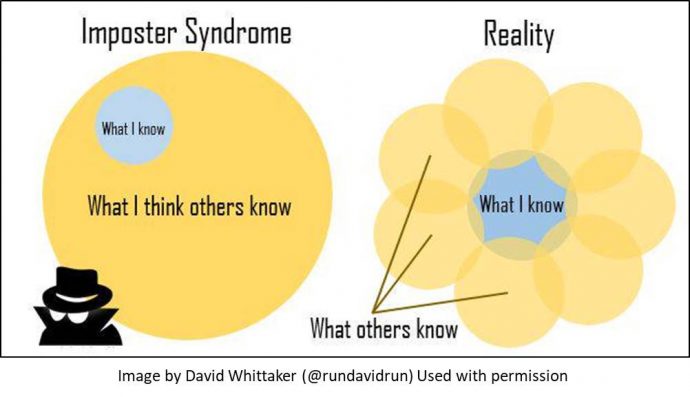
Navigating Academic Success: How can students deal with Impostor Syndrome
When I was studying in Punjab University, doing my bachelors degree, every student in my graduate program has gone through periods of imposter syndrome. One of my first thoughts, sitting in a seminar room full of smart-sounding graduate students, was that I shouldn’t be here. I was unintentionally accepted into the program by the institution despite my lack of knowledge. And soon, it will all become clear to everyone that I am a fake.
Many college students have this feeling of not fitting in, falling short, or having to fake it at school. Twenty percent of college students reported having imposter syndrome in a 2019 survey. Furthermore, up to 82% of people may experience the illness at some point in their lives, according to a 2020 analysis of medical data.
But not every student experiences impostor syndrome in the same way. Students who are first generation report experiencing feelings of imposter syndrome more frequently. Likewise, overachievers. It is called “impostor syndrome” when someone feels like a fake. Students who exhibit these symptoms frequently believe that their achievements are unworthy of them or that their stellar academic performance may have been an accident. In addition, they fear that someone may discover how inadequate their intelligence is. One example of imposter syndrome in college is believing that, despite your success in class, your academic work is inadequate. Concerns about failing might also prevent college students from taking chances or challenging the status quo in the classroom.
Students who feel like they are imposters may over- or under-prepare as a coping mechanism. However, when they get compliments, they either brush it off or think it was an anomaly. The fear of being an impostor undermines people’s confidence. It may also be a factor in depression and anxiety. Furthermore, a lot of the coping skills students learn to control their emotions wind up impairing both their mental and academic well-being.
How may imposter syndrome be conquered by students? Thankfully, students can overcome their negative emotions and uncertainties with the use of a few easy techniques.
- It need time to get over impostor syndrome. To challenge their ideas, kids must, in part, rewire their minds. For instance, instead of thinking I’m not intelligent enough for this class, frame your doubts in terms of how I’m learning and coming to conclusions.
- Confiding in friends and classmates can also be beneficial. Many people find that just knowing that other students feel the same way they do helps them deal with impostor syndrome.
- For university students who breezed through high school, college might occasionally be a harsh awakening. Overachievers and perfectionists could struggle under increased expectations. In these situations, consciously resist your need for perfection. It’s okay to not be flawless all the time, and giving oneself some leeway might help reduce feelings of alienation.

Content writer, educationist, teacher, researcher, social media manager, and a SEO manager from lahore. She has been working as a freelance academic and non-academic writer for more than 20 years now. She has a passion to learn new things and has a knack for writing and she combines both things to produce write ups she pours her heart out in.

